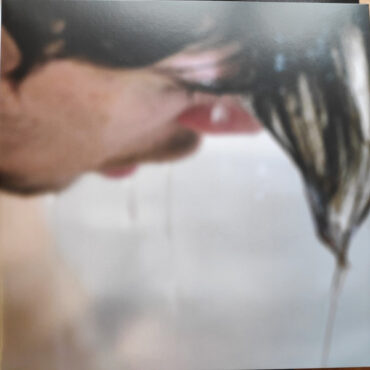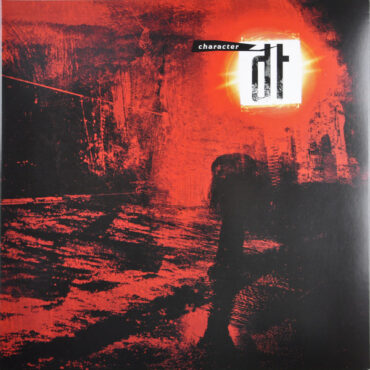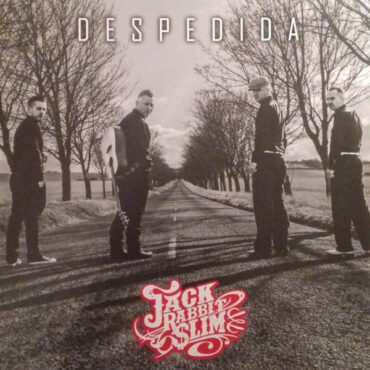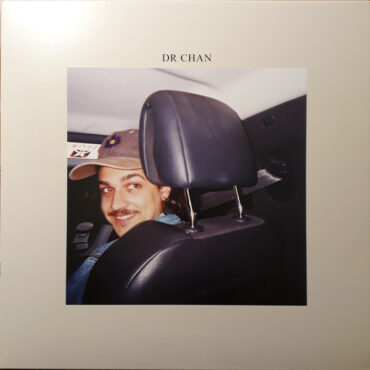Joy Division were an English rock band formed in Salford in 1976. The group consisted of vocalist Ian Curtis, guitarist/keyboardist Bernard Sumner, bassist Peter Hook and drummer Stephen Morris.
Sumner and Hook formed the band after attending a Sex Pistols concert. While Joy Division’s first recordings were heavily influenced by early punk, they soon developed a sound and style that made them one of the pioneers of the post-punk movement.
Their self-released 1978 debut EP An Ideal for Living drew the attention of the Manchester television personality Tony Wilson, who signed them to his independent label Factory Records.
Their debut album Unknown Pleasures, recorded with producer Martin Hannett, was released in 1979.
Curtis suffered from personal problems including a failing marriage, depression, and epilepsy. As the band’s popularity grew, Curtis’s condition made it increasingly difficult for him to perform; he occasionally experienced seizures on stage.
He killed himself on the eve of the band’s first US/Canada tour in May 1980, aged 23. Joy Division’s second and final album, Closer, was released two months later; it and the single “Love Will Tear Us Apart” became their highest charting releases.
The remaining members regrouped under the name New Order. They were successful throughout the next decade, blending post-punk with electronic and dance music influences.
Legacy
Despite their short career, Joy Division have exerted a wide-reaching influence. John Bush of AllMusic argues that Joy Division “became the first band in the post-punk movement by … emphasizing not anger and energy but mood and expression, pointing ahead to the rise of melancholy alternative music in the ’80s.”
Joy Division have influenced bands including their contemporaries U2 and the Cure to later acts such as Interpol, Bloc Party and Editors.
Rapper Danny Brown named his album Atrocity Exhibition after the Joy Division song, whose title was partially inspired by the 1970 J. G. Ballard collection of condensed novels of the same name.
In 2005, both New Order and Joy Division were inducted into the UK Music Hall of Fame.
The band’s dark and gloomy sound, which Martin Hannett described in 1979 as “dancing music with Gothic overtones”, presaged the gothic rock genre.
While the term “gothic” originally described a “doomy atmosphere” in music of the late 1970s, the term was soon applied to specific bands like Bauhaus that followed in the wake of Joy Division and Siouxsie and the Banshees.
Standard musical fixtures of early gothic rock bands included “high-pitched post-Joy Division basslines usurp[ing] the melodic role” and “vocals that were either near operatic and Teutonic or deep, droning alloys of Jim Morrison and Ian Curtis.”
Joy Division have been dramatised in two biopics. 24 Hour Party People (2002) is a fictionalised account of Factory Records in which members of the band appear as supporting characters.
Tony Wilson said of the film, “It’s all true, it’s all not true. It’s not a fucking documentary,” and that he favoured the “myth” over the truth.
The 2007 film Control, directed by Anton Corbijn, is a biography of Ian Curtis (portrayed by Sam Riley) that uses Deborah Curtis’s biography of her late husband, Touching from a Distance (1995), as its basis.
Control had its international premiere on the opening night of Director’s Fortnight at the 2007 Cannes Film Festival, where it was critically well received.
That year Grant Gee directed the band documentary Joy Division.
Tracklist
A1 As You Said
A2 The Drawback
A3 Autosuggestion
A4 Love Will Tear Us Apart
A5 Exercise One
A6 The Only Mistake
B1 Candidate
B2 Shadowplay
B3 Glass
B4 Ice Age
B5 Interzone
B6 Walked In Line
Band members
Ian Curtis – lead vocals, guitar, melodica (1976–1980)
Bernard Sumner – lead guitar, keyboards, backing vocals, bass (1976–1980)
Peter Hook – bass, backing vocals, guitar (1976–1980)
Terry Mason – drums (1976–1977)
Tony Tabac – drums (1977)
Steve Brotherdale – drums (1977)
Stephen Morris – drums, percussion (1977–1980)
Joy Division discography
Unknown Pleasures (1979)
Closer (1980)
Factory Records was a Manchester-based British independent record label founded in 1978 by Tony Wilson and Alan Erasmus.
The label collapsed in 1992 and was bought by London Records.
The label featured several important acts on its roster, including Joy Division, New Order, A Certain Ratio, the Durutti Column, Happy Mondays, Northside, and (briefly) Orchestral Manoeuvres in the Dark and James.
Factory also ran The Haçienda nightclub, in partnership with New Order.
Like the 4AD label, Factory Records used a creative team (most notably record producer Martin Hannett and graphic designer Peter Saville) which gave the label and the artists recording for it a particular sound and image.
The label employed a unique cataloguing system that gave a number not just to its musical releases, but also to various other related miscellany, including artwork, films, living beings, and even Wilson’s own casket.
History
‘The Factory’
The Factory name was first used for a club in May of 1978; the first Factory night was on the 26 May 1978.
The club became a Manchester legend in its own right, being known variously as the Russell Club, Caribbean Club, PSV (Public Service Vehicles) Club (so titled as it was originally a social club for bus drivers who worked from the nearby depot) and ‘The Factory’.
The ‘Factory’ night at The Russell Club was launched by Alan Erasmus, Tony Wilson, and helped by promoter Alan Wise. The name ‘Factory’ was chosen in homage to the New York club of the same name.
As well as attracting numerous touring bands to the area and many upcoming post punk bands, it featured local bands including the Durutti Column (managed at the time by Erasmus and Wilson), Cabaret Voltaire from Sheffield and Joy Division.
The club was demolished in 2001. The club was located on the northeast corner of the now demolished Hulme Crescents development.
Peter Saville designed advertising for the club, and in September Factory released an EP of music by acts who had played at the club (the Durutti Column, Joy Division, Cabaret Voltaire, and comedian John Dowie) called A Factory Sample.
Factory Classical
In 1989, Factory Classical was launched with five albums by composer Steve Martland, the Kreisler String Orchestra, the Duke String Quartet (which included Durutti Column viola player John Metcalfe), oboe player Robin Williams and pianist Rolf Hind.
Composers included Martland, Benjamin Britten, Paul Hindemith, Francis Poulenc, Dmitri Shostakovich, Michael Tippett, György Ligeti and Elliott Carter.
Releases continued until 1992, including albums by Graham Fitkin, vocal duo Red Byrd, a recording of Erik Satie’s Socrate, Piers Adams playing Handel’s Recorder Sonatas, Walter Hus and further recordings both of Martland’s compositions and of the composer playing Mozart.
Successor labels
In 1994, Wilson attempted to revive Factory Records, in collaboration with London Records, as “Factory Too”.
The first release was by Factory stalwarts the Durutti Column; the other main acts on the label were Hopper and Space Monkeys, and the label gave a UK release to the first album by Stephin Merritt’s side project the 6ths, Wasps’ Nests.
A further release ensued: a compilation EP featuring previously unsigned Manchester acts East West Coast, the Orch, Italian Love Party, and K-Track.
This collection of 8 tracks (2 per band) was simply entitled A Factory Sample Too (FACD2.02).
The label was active until the late 1990s, latterly independent of London Records, as was “Factory Once”, which organised reissues of Factory material.
Wilson founded a short-lived fourth incarnation, F4 Records, in the early 2000s.
In 2012, Peter Saville and James Nice formed a new company called Factory Records Ltd., in association with Alan Erasmus and Oliver Wilson (son of Tony).
This released only a vinyl reissue of From the Hip by Section 25. Nice subsequently revived the Factory Benelux imprint for Factory reissues, and for new recordings by Factory-associated bands.
In 2019 Warner Music Group marked the 40th anniversary of Factory as a record label with a website, exhibition, and select vinyl editions including Unknown Pleasures and box set compilation Communications 1978-1992.
Factory Records recording artists
The bands with the most numerous releases on Factory Records include Joy Division/New Order, Happy Mondays, Durutti Column and A Certain Ratio.
Each of these bands has between 15 and 30 FAC numbers attributed to their releases.
Retrospective
An exhibition took place celebrating the 20th anniversary of the closing of Factory Records (1978–1992) and its musical output, at the Ice Plant, Manchester, between 4 and 7 May 2012.
The exhibition was called FACTVM (from the Latin for ‘deed accomplished’).
In October 2019 a new box set was released containing both rarities and the label’s releases from its first two years.












